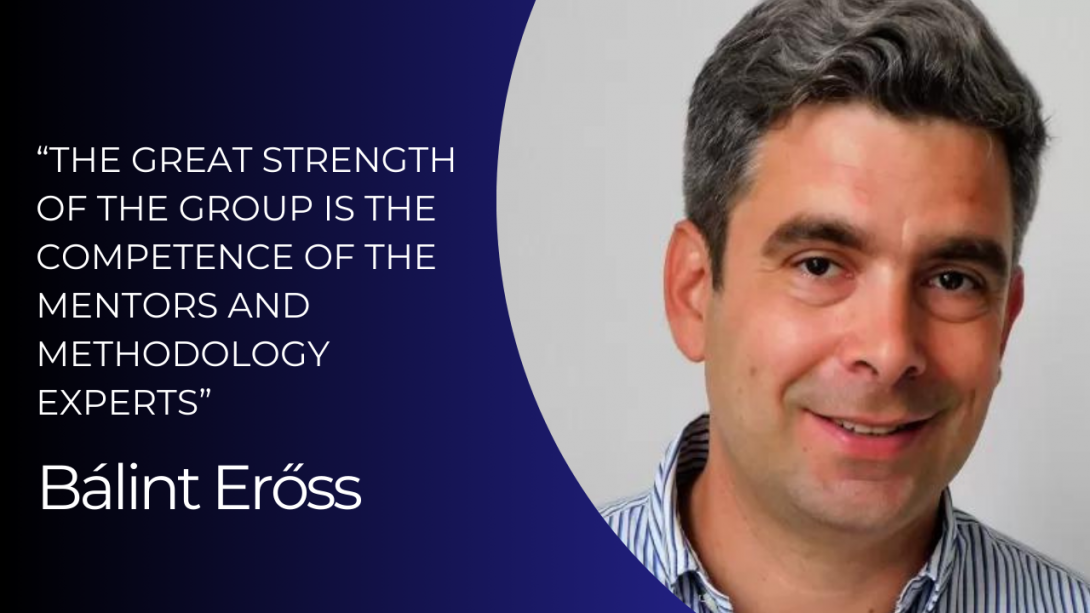
This year, more than fifteen PhD students started their journey in the Gastroenterology Group of the Centre for Translational Medicine. Many of them are researching pancreatic diseases, but there are also students working on other subjects, including medical topics in space research. In November, this group was named the best of the month, so we spoke to Dr. Bálint Erőss, who led the group.
The Gastroenterology Group was founded by Prof. Dr. Péter Hegyi and Dr. Bálint Erőss, with the support of numerous health professionals. The group is helped by Dr. Péter Ferdinandy, Vice-Rector for Science and Innovations at Semmelweis University, and Dr. Renáta Papp, a general practitioner and occupational physician, who is also a senior mentor. “Dr. Orsolya Dohán, who is an internist, endocrinologist, and clinical oncologist, is also supporting the students as a senior mentor, as well as Dr. Ákos Szűcs, who is a surgeon. The great strength of the group is the competence of the senior mentors and methodology experts.”
The group benefits from the presence of coordinators as well. "For example, there is the first-year leader Mahmoud Obeidat, and Brigitta Teutsch, the coordinator of clinical trials, who are actively involved. But I could also mention Marie Anne Engh, who is an excellent coordinator as well. She grew up in Norway but she’s a German-American dual citizen. It is also good that the group has many foreign students. For example, we have a student from Kosovo, several from Romania, and a student from South Korea. The participants are very good and my experience is positive with all of them.”
The students explore a wide range of topics. Many of them deal with pancreatic diseases, and some deal with the medical aspects of space exploration. Some of them have pharmacological topics, which are also very interesting. One of the students is looking at new insights on the oncological and surgical outcomes of colorectal cancer, while another is looking at cannabinoids in the treatment of cancer. The topics show that the majority of the students are medical doctors, but there are also pharmacists, dietitian and other professionals. There is also a member of the group who is an ultra-athlete. This kind of diversity also strengthens the group.
(Szabó Emese)